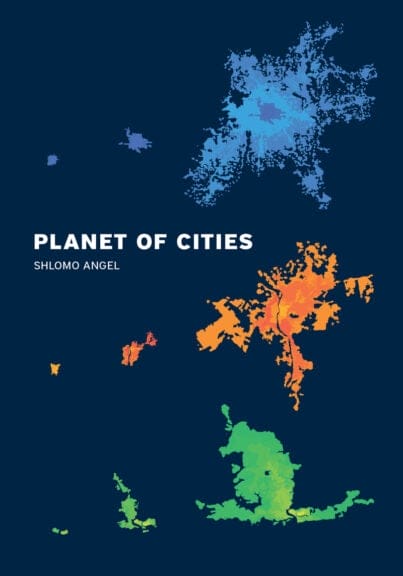Livros

“Students and others looking for a place to start often ask, ‘If I could read just one book about xxxx, which would you suggest?’ When it comes to cities, I have a new favorite. It is Shlomo Angel’s Planet of Cities.”
— Peter Gordon, Emeritus Professor, University of Southern California Sol Price School of Public Policy
This book develops a science of global cities to prepare for the coming expansion of the planet’s population and questions the main tenets of the Containment Paradigm. It provides planners and decision makers with the conceptual framework, basic empirical data, and practical agenda necessary for the minimal yet meaningful management of global urban growth.
About the Author
Shlomo (Solly) Angel is a professor of city planning at New York University’s Marron Institute and leads both NYU’s Urban Expansion program and Stern Urbanization Project.
Reviews
“Shlomo Angel has written a fascinating and timely book about cities. It is full of interesting facts and wisdom. The book gives a sense of the enormous variety of challenges facing the world’s cities and the folly of trying to handle every one of these urban challenges with a one-size-fits-all policy.”
— Edward L. Glaeser, Fred and Eleanor Glimp Professor of Economics, Harvard University; Director, Taubman Center for State and Local Government and Rappaport Institute for Greater Boston, Harvard University
“In Planet of Cities, Shlomo Angel has produced a landmark study, one that combines an ambitious new history of global urban growth with a surprisingly simple and convincing set of policy recommendations. The book suggests that some planning policies that are widely accepted in the United States and Europe are likely to be counterproductive in the developing world. However, the implications of this study are much larger. This is a book that will upset some readers, particularly those with fixed ideas of how cities should look and work, but for others the sweeping scope and sometimes startling new conclusions will be exhilarating.”
— Robert Bruegmann, Professor Emeritus of Art History, Architecture, and Urban Planning, University of Illinois at Chicago
“Cities are our engines of creativity, wealth creation, and economic growth, yet they also pose threats to our climate, our natural environment, and our food, energy, and water supplies. To resolve these complex issues there is an urgent need to develop a deeper understanding of their dynamics and organization. Shlomo Angel’s wonderful book, Planet of Cities, has begun to do just that. He has brought his unique perspective as a distinguished urban planner and geographer with a depth of experience in addressing real-world problems to produce a deeply insightful book that can be used equally by researchers, from economists to physicists, and by practitioners, from urban planners and architects to politicians. It contains a wealth of knowledge, information, and insights interspersed with a delightful historical perspective that I will be returning to again and again. This timely and important book will inform critical thinking about what I consider to be our planet’s greatest challenge.”
— Geoffrey B. West, Distinguished Professor and Past President, Santa Fe Institute; Senior Fellow, Los Alamos National Laboratory
“Committed environmentalists and other defenders of urban containment are sure to reject at what Mr Angel calls ‘the making room paradigm.’ But he makes a solid argument that this is a much more realistic way of dealing with urbanisation than building new city walls, particularly in developing countries. ‘As heroic and justified as it may be,’ he writes, ‘containing the oncoming global urban expansion is much the same as holding back the tide.’”
— Appeared in The Economist
Keywords
Desenvolvimento, Globalização, Controles de Crescimento, Gestão do Crescimento, Habitação, Infraestrutura, Monitoramento do Mercado Fundiário, Regulação dos Mercados Fundiários, Uso do Solo, Planejamento de Uso do Solo, Planejamento, Políticas Públicas, Serviços Públicos, Reutilização do Solo Urbano, Crescimento Inteligente, Desenvolvimento Sustentável, Transporte, Urbano, Desenho Urbano, Desenvolvimento Urbano, Espraiamento Urbano, Melhoria Urbana e Regularização, Urbanismo
